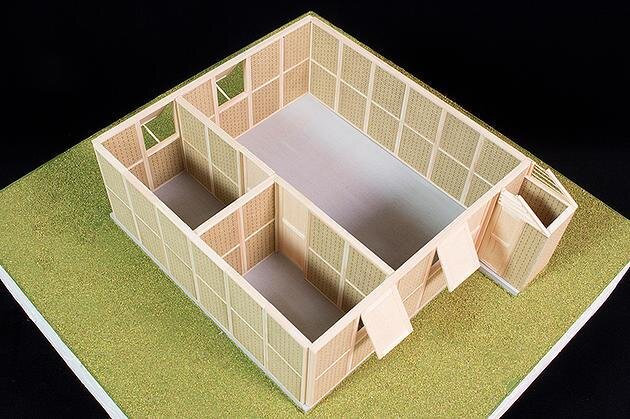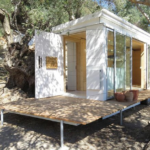Aug 17, 2015 • Shelter
Disaster Housing with a Cardboard Roof by Shigeru Ban

The Pritzker Prize-winning Japanese architect Shigeru Ban has developed a plan to provide disaster relief housing for those affected by the two earthquakes in Nepal earlier this year. Dubbed the Nepal Project, it aims to provide housing for the many who were left homeless after the natural disaster.

The two earthquakes, which are believed to have been the worst to hit the country in over 80 years, resulted in the death of approximately 9000 people, 25,000 injured, and scores more left without a home. Shigeru’s Nepal Project aims to provide basic housing making use of the rubble from the devastation.

The house is a modular structure and can be increased in size to accommodate families of all sizes, or can be used for larger community buildings such as schools. It makes use of a wooden frame to create the structure of the home, after which the roof and walls are added.

The walls are formed from the rubble of buildings that were destroyed in the quakes. The bricks are simply used to infill the panels, rather than act as a structural component. In typical Shigeru fashion, the roof is composed on circular cardboard tubes – a material he has used throughout his career – and plastic sheeting.

From the architects: “This simple construction method enables anyone to assemble the wooden frames very quickly and if a roof is secured on top, and the wooden structure covered with a plastic sheet, people can immediately begin to inhabit the shelters.”

This isn’t the first time Shigeru has applied his skills to disaster relief – he’s previously worked on projects in New Zealand, Sri Lanka and Japan. The studio is hoping to complete its first prototype later this month. Shigeru’s disaster relief charity, Voluntary Architects’ Network (VAN) is already present in the affected area, providing tents for those in need.
For more shelters check out these whimsical single-person pods created by Gregory Kloehn for the homeless. Or, Econnect’s concept house that’s built like a 3D puzzle. See all shelters.
Via Dezeen
Photos: Calzada Visualization
Join Our Newsletter And
Get 20% Off Plans
Get the latest tiny house news, exclusive
offers and discounts straight to your inbox



